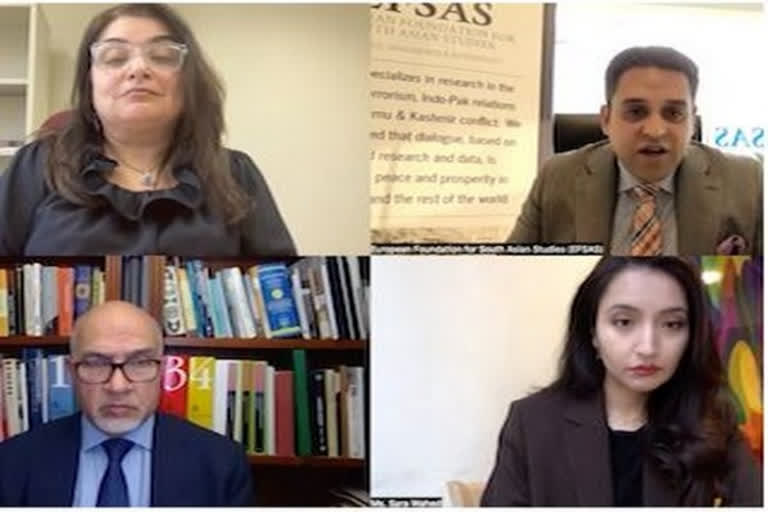Kabul: An all-Afghan panel consisting of a scholar, former diplomat, and young innovator at the 49th Session of the UN Human Rights Council discussed the human rights situation in Kabul after the Taliban takeover of the country in mid-August and expressed concern over the transformation of the educational system under Taliban rule which may turn Afghanistan into a hotbed of terrorism.
On the side-lines of the 49th Session of the UN Human Rights Council in Geneva, the European Foundation for South Asian Studies (EFSAS) organized a Webinar on March 30 on 'Human Rights Situation in Afghanistan', in order to illuminate the increasingly deteriorating situation there. Moderated by Junaid Qureshi, Director of EFSAS, the session was joined by a large number of attendees, including human rights activists, NGO representatives, diplomats, and researchers. The event was held on March 30.
Mahmoud Saikal, Adjunct Professor at the University of Canberra, Chair of Kabul Association of Integrity, Former Deputy Foreign Minister of Afghanistan, and Ambassador to the United Nations and Australia, noted that human rights violations have become commonplace under Taliban rule. "Male government employees have been forced to pray, grow a beard, and wear traditional clothes, whilst the Taliban have also banned foreign media outlets and restricted the operations of domestic media outlets. To bolster the ranks of its suicide divisions, the Taliban has started to recruit orphans," he said in a statement.
He highlighted that the Taliban's transformation of the educational system is likely to make Afghanistan a hotbed of terrorism. Turning toward the humanitarian situation in Afghanistan, Saikal suggested that 60 percent of all Afghans are currently in dire need of humanitarian assistance. The international response to the Taliban's takeover, Saikal argued, for instance in the case of UNAMA, has been reactive rather than proactive.
He also noted that the existing UN architecture, including the General Assembly, the Security Council, and the Human Rights Council, has been incapable of adequately responding to the deteriorating situation in the country. Saikal concluded that the Taliban's approach toward the Doha Agreement indicates that the Taliban must be judged based on its behavior rather than its rhetoric. Dr Bahar Jalali, Associate Professor of History at Loyola University Maryland, US and founder of the first Gender Studies program in Afghanistan, emphasized that the Taliban cannot be described as an Afghan movement as the ranks of the Taliban were recruited from Afghans who had fled to Pakistan and who had thus never experienced a traditional Afghan life.
Also read:Striking parallels: Ukraine, Afghanistan, story of unsuccessful invasions
During the 1960s, Dr. Jalali noted, the Afghan elite was constituted by a comparatively progressive group that promoted the introduction of a progressive constitution in 1964 that was followed by the election of the first female representatives to the Afghan parliament in 1965. Afghanistan's trajectory changed significantly following the 1978 Saur Revolution, reversing much of the progress that Afghanistan had made in previous decades.
